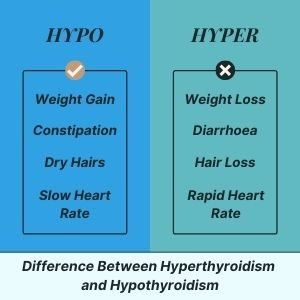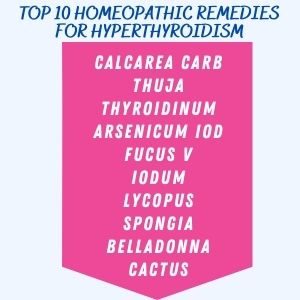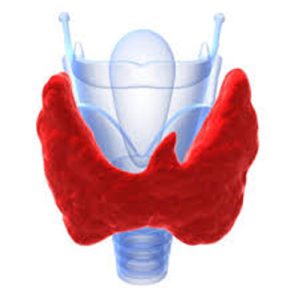Are you experiencing weight loss, excessive sweating, or feeling anxious? You might be suffering from hyperthyroidism. Hyperthyroidism is a thyroid disorder where the thyroid gland produces an excess of thyroid hormones, leading to various metabolic disturbances. This article explains hyperthyroidism, its causes, symptoms, and the best homeopathic treatments for this condition.
Hyperthyroidism is a condition where the thyroid gland overproduces thyroid hormones, specifically triiodothyronine (T3) and thyroxine (T4). These hormones regulate metabolism, and when produced in excess, they increase the metabolic rate and over-activate the nervous system, causing a range of symptoms. This condition often leads to an imbalance in thyroid hormone levels, with elevated T3 and/or T4 levels and suppressed TSH (Thyroid Stimulating Hormone).
Several factors contribute to the development of hyperthyroidism, including:
Hyperthyroidism, if left untreated, can lead to serious complications, including:
Conventional treatments typically involve medication and procedures to manage thyroid hormone levels:
While these treatments can manage hyperthyroidism, they may lead to lifelong dependence on medication or thyroid hormone replacements.
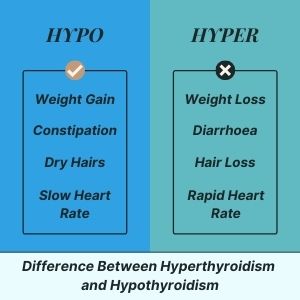
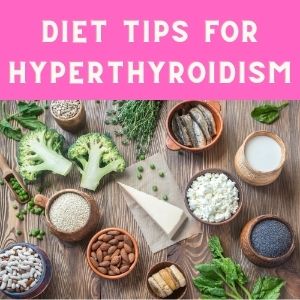
A proper diet can help manage hyperthyroidism and prevent complications:
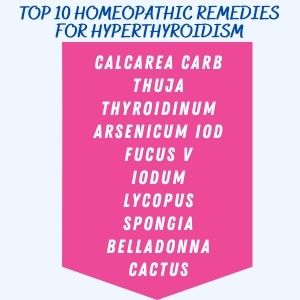
Homeopathy can offer a natural and holistic approach to managing hyperthyroidism. Some of the top homeopathic remedies include:
These homeopathic remedies are chosen based on individual symptoms and should be taken under the guidance of a professional homeopath.
At HomoeoCARE, we follow a two-pronged approach to treat hyperthyroidism:
HomoeoCARE has a proven track record in successfully treating hyperthyroidism with homeopathic remedies. Many patients have experienced significant improvements in their thyroid function and overall well-being.
If you’re seeking an effective and natural solution to manage hyperthyroidism, consider exploring homeopathy at HomoeoCARE for a personalized treatment plan.
Hyperthyroidism is a serious condition that requires timely intervention. While conventional treatments like medication and surgery can help manage symptoms, homeopathy offers a natural, long-lasting solution by addressing the root causes of thyroid dysfunction. By choosing homeopathy, you can support your thyroid health and improve your overall quality of life.
For personalized care and treatment for hyperthyroidism, connect with HomoeoCARE.
